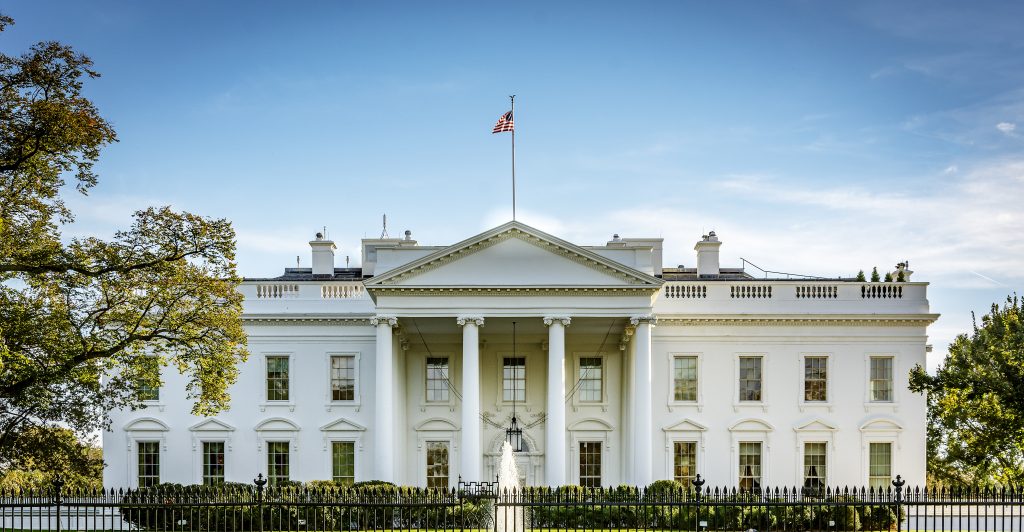The recent executive actions by President Donald Trump offer only a false sense of relief to the tens of thousands of Mainers who have seen their incomes slashed by two-thirds since the US Senate allowed emergency unemployment benefits to expire at the end of July.
Only Congressional action can provide the level of relief required to ensure that millions of children get enough to eat, that families keep their housing, that schools and communities get the resources they need to contain the spread of COVID-19, and that state and local governments aren’t forced to make harmful cuts that jeopardize our future recovery.
The orders are no substitute for a real COVID-19 relief package from Congress. They are likely to face legal challenges over the separation of powers between the executive and legislative branches. But even if they survive court, they fall short in addressing the hardship people are facing during the pandemic recession and do nothing to address continuing increases in COVID-19 cases.
The challenges and hardship of the pandemic recession demand a federal response that meets the scope of the crisis. Majority Democrats in the US House of Representatives passed a substantial relief bill in May. Since then, majority Republicans in the US Senate have refused to take up the bill, and have offered a much smaller package inadequate to the scale of the crisis and unable to garner votes necessary for passage.
The President’s actions do little to advance meaningful solutions.
Trump’s flawed unemployment plan is underfunded but brings new costs to states — all while leaving the most vulnerable workers behind
One of the most pressing concerns facing Mainers is the end of a $600 bonus unemployment benefit that helped make family budgets whole for laid-off workers, supporting the basic needs of 182,000 Mainers. While they are still desperately needed, these benefits expired at the end of July after Congress failed to pass a bill to extend them. Mainers receiving unemployment compensation have now seen their income drop by more than two thirds, on average.
One of President Trump’s executive orders creates a new joint state-federal program to issue weekly $400 payments to most Americans receiving unemployment benefits. This reduced benefit would require the creation of a new joint state-federal system, a costly process that would likely take weeks or months while families continue to fall behind on their bills.
It would create a system too complex for states to implement quickly enough to provide much-needed benefits, at a time when they are already trying to process record numbers of unemployment insurance claims. Maine’s Labor Commissioner, Laura Fortman, decried the proposal, saying it was “vague and include no information about how the program should be implemented or would work, raising serious concerns about the ability to deliver benefits to out-of-work Mainers in a timely manner.”
The president’s poorly conceived unemployment proposal would fund weekly payments with $44 billion from the federal Disaster Relief Fund for the weekly payments. The order authorizes payments through December 6, 2020, but the amount of funding is sufficient for only 5 weeks of payments.[1] It also would require states to pay at least 25 percent of the cost for workers’ benefits. With 84,000 continuing unemployment claimants, Maine would have to find $8.4 million every week even at it faces a $500 million shortfall this fiscal year.
Perhaps most disturbingly, the order would exclude the lowest-paid workers from new benefits. The order specifies that only Americans receiving at least $100 in unemployment payments each week would receive the $400 payment. In Maine, the minimum weekly payment is $80 per week, meaning the workers most in need of financial assistance would receive no additional benefit under the president’s plan.
Payroll tax scheme is a bait-and-switch that does nothing for Mainers most in need
Another of the President’s orders defers collection of most Social Security and Medicare payroll taxes between September 1 and December 31.
A payroll tax cut does nothing for the tens of thousands of laid-off Mainers who aren’t on payroll. Nor does it help self-employed or gig workers who don’t receive a payroll wage.
Even for Mainers who still have payroll jobs, the action may have little impact. The president has no authority to waive the tax entirely, so the order is in fact only a deferral of taxes owed. Employers are not obligated to pass any tax savings on to employees, and may decide to hold the taxes in reserve, expecting to pay them to the treasury at the end of the year.
Even if the tax cut were implemented as intended, the cost would be high: The Institute on Taxation and Economic Policy estimates the cost at $336 billion, with the bulk of benefit to high-income households and corporate shareholders. And it would undercut funding for Social Security and Medicare, two critical programs that provide economic security for older Americans.
Conclusion
The President does not have the means to resolve any of the pressing economic and public health crises alone. Real relief must come from Congress and address multiple issues including additional funding for health care and other critical public services, support for laid-off workers and others struggling during the recession, protections from eviction, and emergency funds to help state and local governments meet budget needs during an unprecedented revenue crisis.
President Trump should return to the bargaining table with Congressional Democrats to craft a real, bipartisan relief package that meets Mainers’ needs.
Notes:
[1] Calculated as $300 per week for each of the 33.1 million estimated regular UI and PUA recipients.




